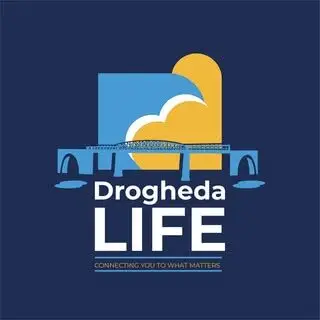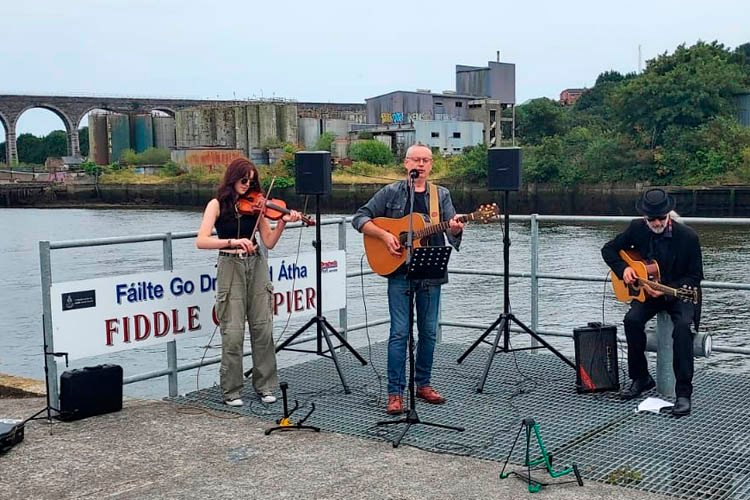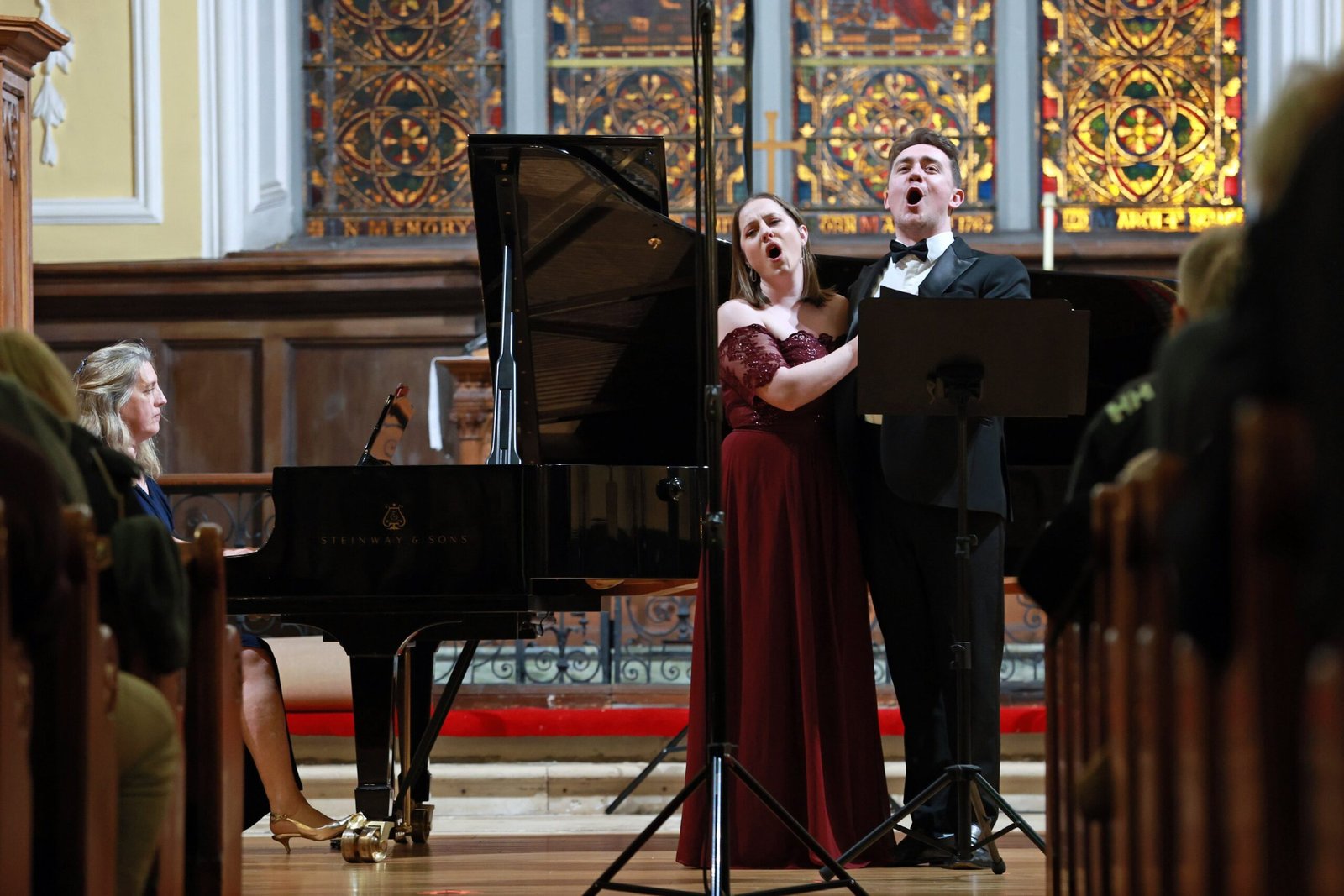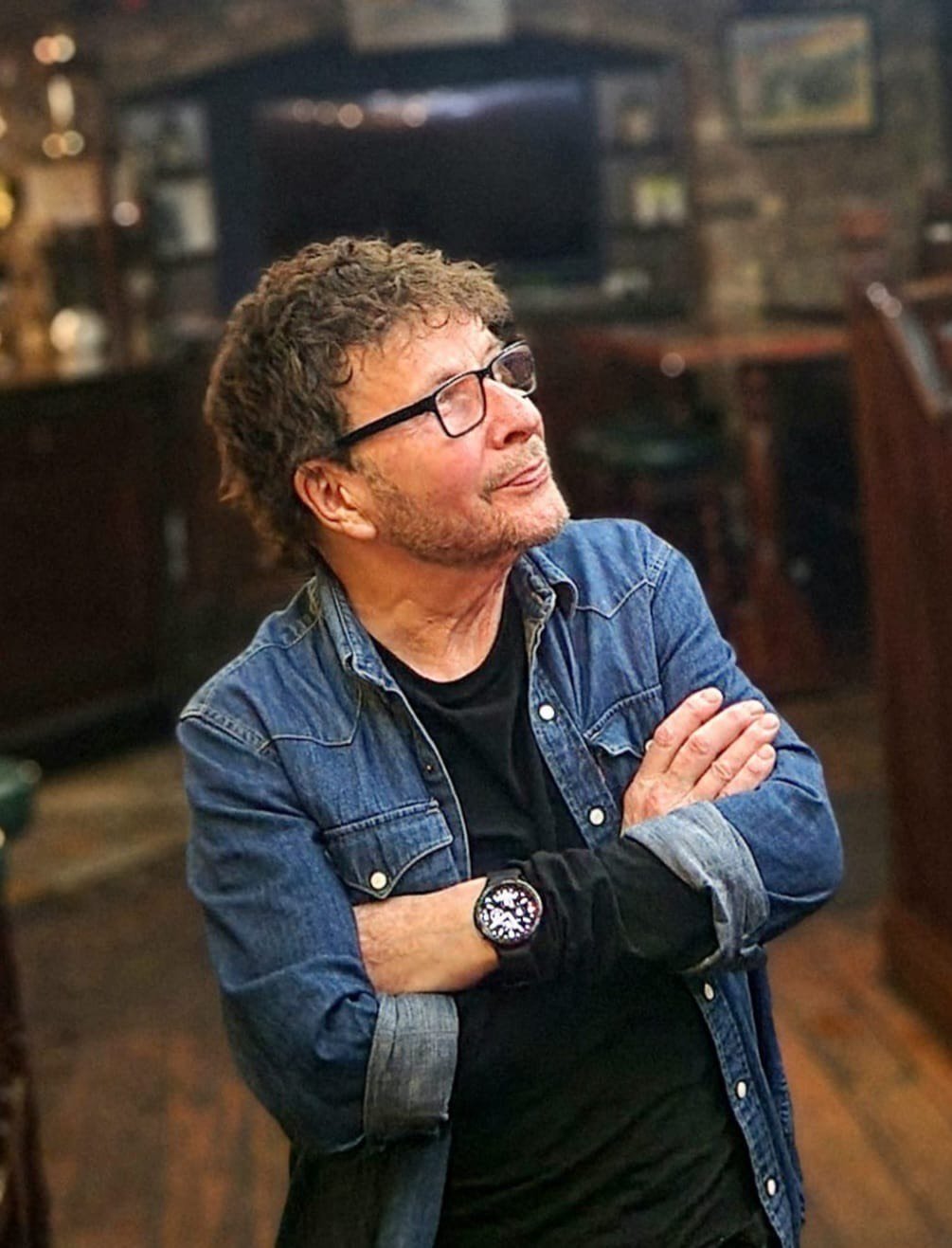By Andy Spearman
Yesterday’s “Pretty Vacant” tour of Drogheda’s derelict sites was an event like no other – by turns interesting, informative, sad and joyful.
Such is the level of dereliction in Drogheda It could have been a depressing couple of hours but, as organiser Dom Gradwell established from the very start, it wasn’t all negative, there was some positive news also – work stated on the Council buildings in Fair Street, the refurbishment of Dominic’s bridge almost complete and work on the open space at the top of Peter Street underway.
The event, which attracted almost 80 participants, began at Dominic’s Park across the river Boyne from the eyesore that is the burnt out remains of Donaghy’s Mill,
The Mill has been derelict for years but doesn’t even appear on Louth County Council’s derelict sites register despite the fact that it is one of the top ten buildings on An Taisce’s most endangered structures list.
Dom pointed also to the eleven storey apartment block being built beside which, he said shows the madness of how the planning system works in this country.
Local historian Brendan Matthews was next to the microphone with a history of Donaghy’s Mill and the architecture of Drogheda in general:
Of course Drogheda is not the only town or city in Ireland that has problems with vacant and derelict buildings and there were people from other towns in attendance at yesterday’s event to lend their support to what will hopefully be the star of a campaign in Drogheda to get the powers that be to come up with a solution.
Donnan Harvey of the Letterkenny Cathedral Quarter volunteer group told Drogheda Life about the success they have had in restoring an historic area of their town and the exciting plans they have for the future working in conjunction with the Regeneration and Development Team of Donegal County Council.
The widespread dereliction in Ireland has been the subject of much discussion but not so much by way of action in recent years. The next speaker at yesterday’s event in Drogheda, Frank O’Connor, is doing his best to get the topic higher up the agenda.
Frank and his partner Jude Sherry moved home to Cork in 2018 having lived for many years in Holland and were shocked to find what Frank calls the “broken social contract” which has resulted in homeless people dying on the streets of their home city amid high levels of vacancy and dereliction.

“From the day we arrived back we were so shocked we felt that we had a responsibility to do something about it” he said. “We didn’t know what we could do but we knew we had to do something.
“It didn’t make any sense to us that the homeless crisis, which was going on at the same time as the dereliction and vacancy crisis, had become normalised, and people were accepting that that’s just the way things are.”
For the next 18 months Frank and Jude walked the streets of Cork, took pictures, chatted to people on the streets and documented what they were seeing. They began to realise that although the media, local authorities and the Government were saying there wasn’t a problem, that wasn’t what they were seeing on the streets.
Frank spoke of the situation of there being thousands of people homeless and on the streets but at the same time there are hundreds of thousands of vacant and derelict properties across the country – 22,000 derelict homes and 1666,000 vacant homes at least.
The duo began a Twitter campaign #DerelictIreland #VacantIreland and posted photos of derelict buildings within a two kilometre radius of the city centre, at least one a day for a year. They documented over 700 by the end of that year even though the Council was reporting just 95 over a much wider boundary.

As a result of their campaign, people began to take notice including the council who asked them to stop because they were “showing the city in a bad light”.
“We believe the people of Ireland have the power to change all this” he said, “but we need to speak up and not accept the levels of vacancy, dereliction, the housing crisis and the homeless crisis.”
Gradually the campaign grew and, with the help of people like Dom Gradwell who started the @DerelictDrawda social media campaign it is shining a light on the alarming levels of dereliction and vacancy in the historic town of Drogheda and elsewhere.
Speaker after speaker pointed out the various levels of nonsense being brought to bear on the problems of vacancy and dereliction in Ireland and in Drogheda including the fact that the Irish laws on dereliction have not been updated in 32 years.
Encouraging Louth County Council to use Compulsory Purchase Orders to bring vacant or derelict buildings back into use, Dom Gradwell said that LCC used to be in the vanguard of local authorities in this respect but now, due to a change of personnel, are “laggards” in this respect.

Cathal Thornton of the Upstate Theatre Group read out a testimony from a young couple who are getting married in October and were considering moving to Drogheda from Roscommon where they had been renting a house.
Their landlord informed them he is selling the house and they thought they’d move closer to their families. Their experience was the common one of viewing houses that are run down which were not suitable to live in and certainly not worth the money being asked.
“When we do find something we end up getting out-bid by investors or people downsizing” they said. “It’s depressing and demoralising. We had no option but to pack up seven years of our lives, put it into storage and move in with our parents.
“We know we are luck y that the parents are willing and able to help in this way but it’s not right. The reality is that by the end of the year we will be a married mid-thirties couple in full employment but living with parents.”
But it was not all doom and gloom – there was music and song along the way from Felix Gorman who sang his own composition “Westgate Mill” and the Stonecold Hobo himself, Martin Cummins, sang the Narrow West Street Blues.
The musicians also brought proceedings to a close at Fiddle Case Pier across the river from another contender for the Drogheda’s ugliest eyesore award, the abandoned tank farm on the South bank of the Boyne, the ones that were the embarrassing backdrop during the popular Maritime Festivals which have by now become mere memories of a more enlightened age.
Thanks are due to Dom Gradwell and his fellow organisers, the Upstate Theatre Group, for organising this important event from which everyone present would have taken home new information and insights into a problem that needs tackling soon.
We can only hope that someone with vision and enthusiasm in Louth County Council can take the baton that has been held out for the next stage in this journey for Ireland’s largest town.
As so many speakers yesterday said, change starts with each of us as individuals contacting our councillors, writing to our TDs, talking to the Council, doing whatever we can to ensure that the laws of the state are updated and enforced to make Drogheda and other towns in a similar position great places to live and do business.
As one speaker said, it is intolerable that speculators, with the seeming connivance of the Department of housing, can buy up vacant housing to accumulate a land bank on which to erect build-to-let apartments.
Many people in attendance yesterday were shocked when they saw some of the derelict houses at the Alleys in Church Lane and Paradise Place off William Street which have been vacant for up to 40 years.
At this stage Dom Gradwell took the mic to explain that one of the houses at Paradise place was his former family home and it saddened him to see it allowed to become derelict over the years. He had some good news however in that work is to start soon on their refurbishment.
SEE SEPARATE ARTICLE:






